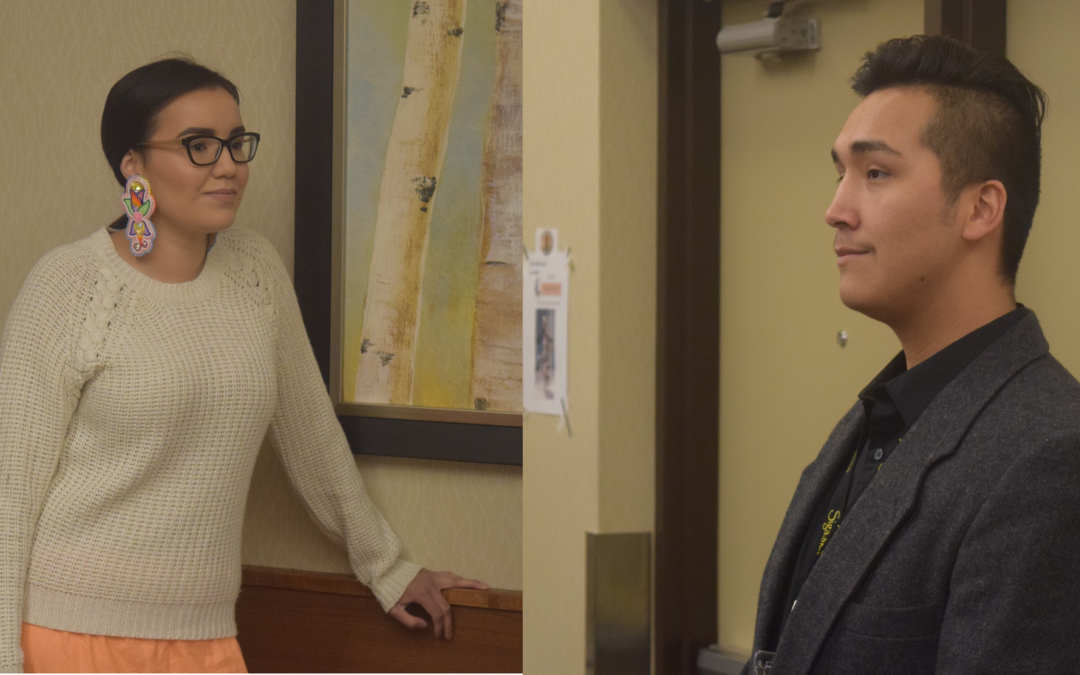Suicide prevention and perceived inequalities in Canada’s justice system are on the minds of First Nation youth in Saskatchewan.
The acquittal of Gerald Stanley in the shooting death of Colten Boushie has been a hot topic of discussion in recent months for a countless number of Canadians. Many have questioned the under-representation of Indigenous people and Indigenous values in the current justice system.
Young Indigenous leaders say these conversations have been especially prevalent in the classrooms and around the tables of First Nations youth.
“This is because it is us on the ground level driving through these prairies,” said Andre Bear. “It is a very real concern for a lot of us.”
Bear and Cheyenne Fineday are the current Federation of Sovereign Indigenous Nations youth representatives. Bear says the tragic Colten Boushie story, has “unfortunately” brought up a lot of fear for young people.
“We really pray and hope for better things and we hope that we can provide space for young people to be empowered and encouraged, to leave that kind of fear behind them and advocate for their people and a better justice system for this country,” said the young man who is a member of Little Pine First Nation, but grew up in Canoe Lake First Nation.
Bear says even though a time like this feels hopeless he believes hope can be found in traditional ceremonies.
“But one day we do hope this legal system can be representative of First Nations people in places like the jury and the lawyers,” he said. “There needs to be a systemic change overall through the legal system.”
Bear and Fineday were first elected in 2015 and Fineday says suicide prevention has been one of their main areas of concern throughout their entire time in this role.
“We want to make sure youth have resources and their voices are heard and that they know they are loved and supported,” said the 21-year-old from Witchekan Lake First Nation. “We have had the support of the FSIN and AFN, but there is still a lot of work ahead.”
Both Fineday and Bear say they prefer the term “life promotion” rather than “suicide prevention” in this type of work. For Fineday, she hopes all Canadians will begin to listen to what First Nation youth are saying on this matter.
“As young people, as First Nation people we know these issues are there, we know our young people need help, but Canada as a whole doesn’t seem to understand,” she said. “In order to understand this, they need to understand what we have been through and what we continue to go through.”

(PHOTO: 16 young Indigenous people have put their names forward to be the FSIN’s next youth representatives. Photo by Joel Willick)
The 2018 FSIN Youth Legislative Assembly is currently underway in Saskatoon. Over the upcoming days around one hundred youth delegates will be voting on motions and electing new FSIN youth representatives
Fineday and Bear have been in this position for several years and say they will not be seeking re-election.
“It’s time to move on,” said Fineday.
A total of 16 youth from across the province are now vying for the soon to be vacant positions. Voters will have to chose between nine young men and seven young women for each respective position.
The election and swearing in of the new youth representatives will take place on Thursday.
(TOP PHOTO: FSIN Youth Representatives Cheyenne Fineday and Andre Bear. Photo by Joel Willick)
